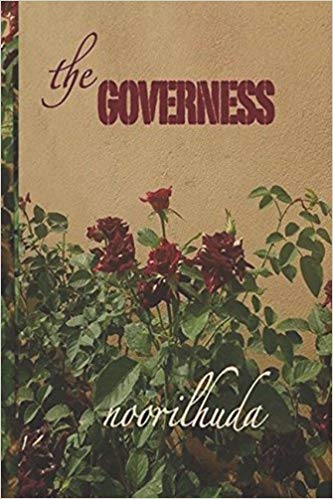
Book Review: The Governess

Despite being thrown out of her precious home by an abusive husband and the terrible rumors surrounding her name, Jane finds work in one of the finest households in Berkshire in The Governess.

Noorilhuda, a debut author, has written a story filled with personal trials. Characters overcome grief, abuse, and gossip. The storyline carries through The Governess well, but it is one book with several areas that require readers' caution.
My Thoughts on The Governess
I picked up a copy of The Governess after receiving a review request from Noorilhuda through email that included dates the book would be free on Amazon.
Touted as a well-received, and well-reviewed by such organizations as The Historical Novel Society and Midwest Book Review, I expected more than I should have from The Governess.
Instead of a well-edited and researched story, I found the shell of a novel, that with a little work, could have been a wonderful read. Sadly, the editing felt non-existent. Lines of dialogue were clumped together in single paragraphs, one speaker on top of another. And without proper formatting and few dialogue tags, there are still some lines my mind has not assigned to a specific character. Though editing was the biggest problem, it was far from the only one.
Descriptions of orange trees and mangoes growing in the cold England climate immediately caught my attention, as did the use of certain words within characters' thoughts that were non-existent in during the 1830s, such as peeved. They stood out. Other times, words with similar phonetics were found instead of the correct words, reminding me of such phrases as for all intensive purposes.
Suggested as a clean book, The Governess mentions the main aspect of sex several times in one line zingers that sometimes come out of nowhere. The most memorable comes when John Lockwood is lamenting the death of his wife, which occurred more than five years earlier—the deed, which is described in one line quite crudely—is what comes to his mind instead of her true characteristics and his purpose for loving her. It struck me as odd. That said, there is no explicit sex scene or scenes that required skipping pages, just lines that I wanted to black out with a Sharpie.
The shell of the story is decent. A woman, accused of having an affair, who has been thrown out on her ear by her husband and society, becomes the governess to children of one of society's elite. Something much of society finds egregious. Moreover, the children's widowed father has an affair with a married woman who is also well-respected in society, despite everyone's knowledge of their fraternizing.
Through the slow-moving story, the governess affects the household and changes within the home weave their way into the pages. A great deal about Mr. Lockwood's mistress could be left out. But other than that, the pacing is reasonable for the genre.
Though The Governess intended Jane to be the main character, I struggle to say that she is. I find John Lockwood, the widowed father, struggles most with inner turmoils and that he is the character who shows the most growth. Whereas Jane tends to stand her ground through every bit of turmoil. She shows strength despite her nasty plight. Most of her growth takes place in the backstory, enabling her to be the moral beacon in the Lockwood home.
Obviously, this is not a book I recommend. However, if you choose to pick it up, I hope the information found here enables you look past the errors and enjoy the storyline.
The Official Blurb
“You make it seem like the cross was yours to bear, alone, do you really think you are brave? Let me tell you, who the brave one is, it’s each and every member of your family who didn’t slap you silly the first time you went awry, the first time you brushed your children aside for merriment. It’s your children, Mr. Lockwood, they are the courageous ones. Not you, you are nothing but a coward. And all for what? For your own selfish needs and whims, your own desire to be alone and free. Free from pain, was it? Or do you really want to leave a debauched legacy? Well, are you free Mr. Lockwood? I don’t see any shackles on you; Are you free from the pain and happy, truly happy?……No passion is great enough for you to lose sight of what’s your duty, and the right thing to do. For that is not passion, but madness. You’re mad Mr. Lockwood, completely, utterly, mad.”
Thus begins the fiery odd relationship between Jane, the governess, and her employer, the widowed landowner John E. Lockwood. But Jane has her own crucible as well, and it's hers to bear alone. Find out what Jane, The Governess, is made of. After all, True Worth has no regrets and takes no detours. Should you?
A movingly passionate and introspective character analysis of lonely people living through emotional abuse, grief, and guilt.
More info
Find a copy of The Governess on Amazon
